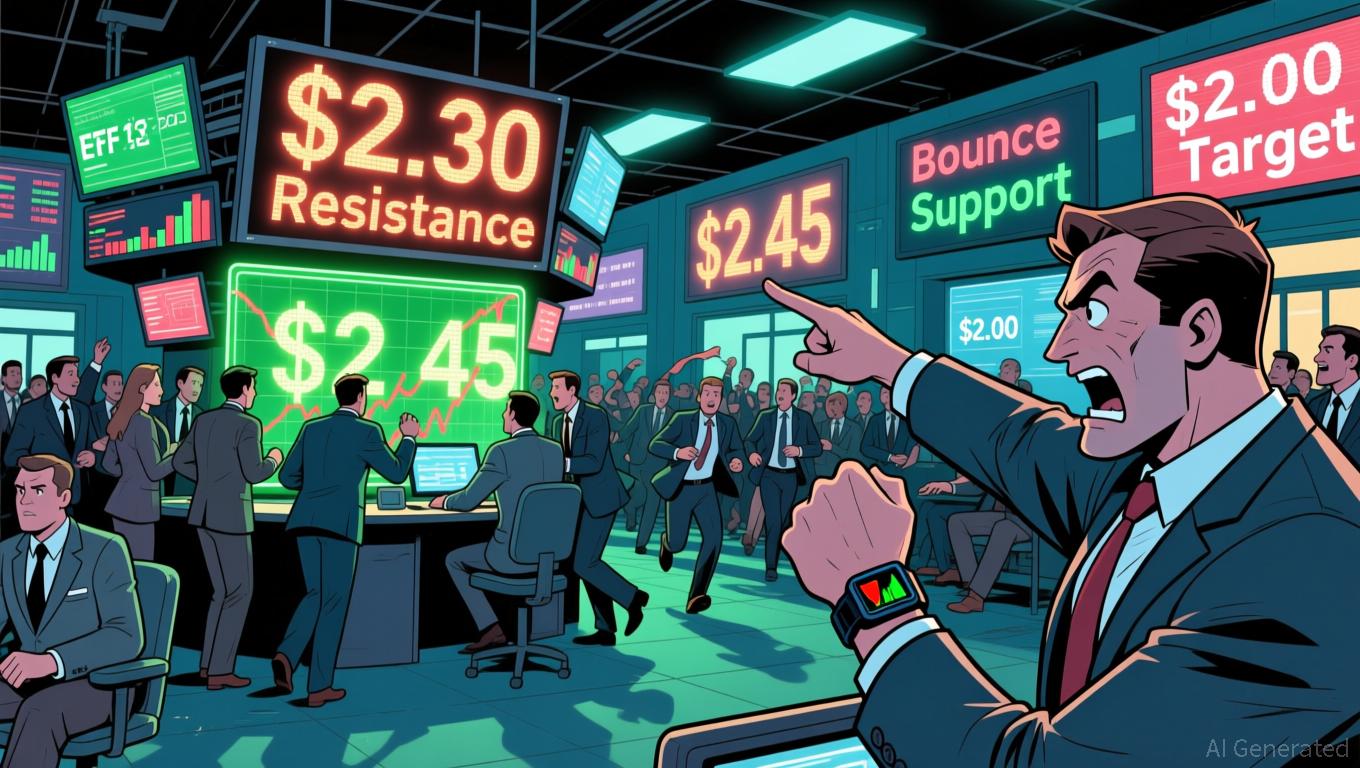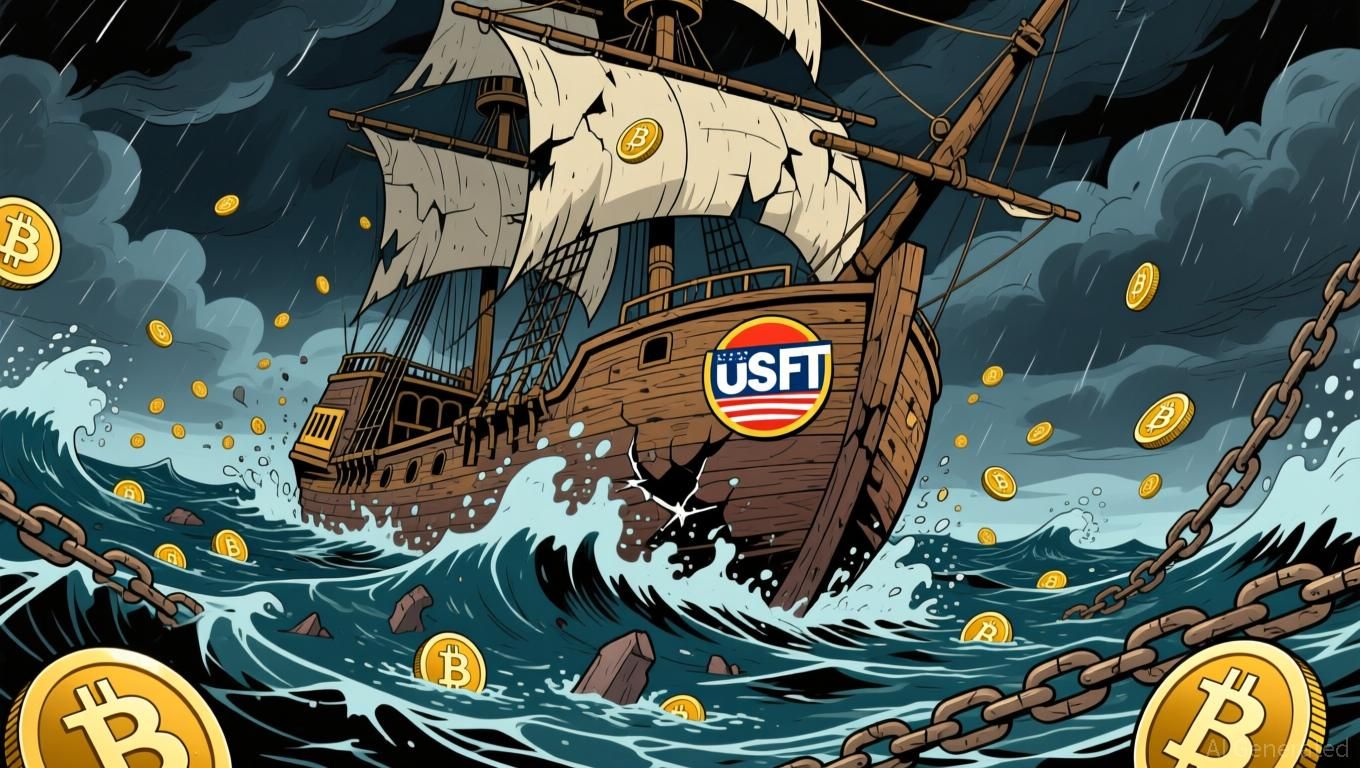UAE Establishes International Benchmark for Crypto: Striking a Balance Between Progress and Oversight
- UAE enacts landmark crypto law (Federal Decree No. 6/2025) to regulate DeFi, Web3 protocols, stablecoins, DEXs, and blockchain bridges under central bank oversight. - Entities offering crypto financial services must obtain licenses by September 2026, enforcing AML compliance and systemic risk mitigation through reserve audits and security standards. - Framework balances innovation with stability, supporting UAE's economic diversification goals while attracting institutional investors through regulatory c
The United Arab Emirates has taken a significant step in the international crypto sector by introducing
The law’s coverage is broad, including decentralized finance protocols, tokenized networks, and tools that enable cross-chain asset movement. By placing these activities under centralized regulation, the UAE seeks to boost transparency, strengthen anti-money laundering (AML) measures, and shield users from systemic threats—especially in areas like stablecoins, where liquidity issues could have widespread financial consequences
The UAE’s regulatory strategy aims to strike a balance between encouraging technological advancement and maintaining financial stability. By creating a transparent licensing process, the country positions itself as a welcoming environment for crypto businesses, while also reducing the unpredictability often associated with decentralized technologies
Importantly, the law gives organizations until September 2026 to meet the new requirements, allowing time for adjustment. However, failing to comply could result in hefty fines—up to one billion dirhams—and possible criminal prosecution
By expanding its regulatory framework to include DeFi and Web3, the UAE has established a new standard for global crypto oversight. This move highlights the nation’s dedication to building a robust digital finance sector that safeguards users while embracing the innovative potential of blockchain. As other countries consider how to govern decentralized technologies, the UAE’s approach provides a model for merging innovation with structured regulation.
Disclaimer: The content of this article solely reflects the author's opinion and does not represent the platform in any capacity. This article is not intended to serve as a reference for making investment decisions.
You may also like
Ethereum News Update: Ethereum Faces $2,500 Threshold—Beginning of a Supercycle or Start of a Major Sell-Off?
- Tom Lee predicts Ethereum's $2,500 support level could trigger a buying frenzy, framing it as a structural inflection point after systematic liquidation. - BitMine's 3.63M ETH holdings and recent $20M WorldCoin investment signal institutional confidence in Ethereum's long-term tokenization potential. - While Dencun upgrades and staking yields bolster fundamentals, macro risks and $1,500 downside remain concerns amid volatile $2,900-$3,115 near-term price action.
Bitcoin Updates: Blockrise's Bitcoin Lending Reflects Growing Institutional Confidence in Regulated Digital Asset Finance
- Blockrise, a Dutch Bitcoin-only firm, launched €20,000 crypto-backed loans after securing EU MiCA regulatory approval, enabling cross-border EU operations. - The service targets corporate clients, allowing Bitcoin collateralization while retaining asset ownership, with 8% interest rates adjusted monthly. - Its semi-custodial model uses hardware-secured vaults and joint transaction authorization, managing €100M in client assets under this structure. - The move aligns with rising institutional demand for B

XRP News Today: XRP's Role in International Transactions Strengthens as ETFs Spark Institutional Movement
- XRP's price nears $2.30 threshold amid ETF-driven institutional interest, with Canary Capital's XRPC ETF attracting $13M net inflows despite broader crypto outflows. - Technical analysis highlights fragile support at $2.03 and critical resistance at $2.45, with breakdowns risking a slide to $1.50 while breakouts could trigger bullish momentum. - XRP's real-world utility gains traction via SWIFT GPI integration, demonstrating cross-border payment efficiency that differentiates it from speculative altcoins

Bitcoin Updates: Tether Faces Scrutiny Over Stability—S&P Issues Caution While Crypto Community Responds
- S&P Global Ratings downgraded Tether's USDT to "weak," citing high-risk Bitcoin exposure and reserve transparency concerns. - Tether criticized the rating as "misleading," defending its 1:1 dollar peg and $135B Treasury holdings as evidence of stability. - The downgrade highlights regulatory tensions as USDT faces scrutiny under new laws requiring stablecoins to be fully backed by low-risk assets. - Despite risks, USDT maintains $184B market cap and $76B daily volume, underscoring its critical role in cr
